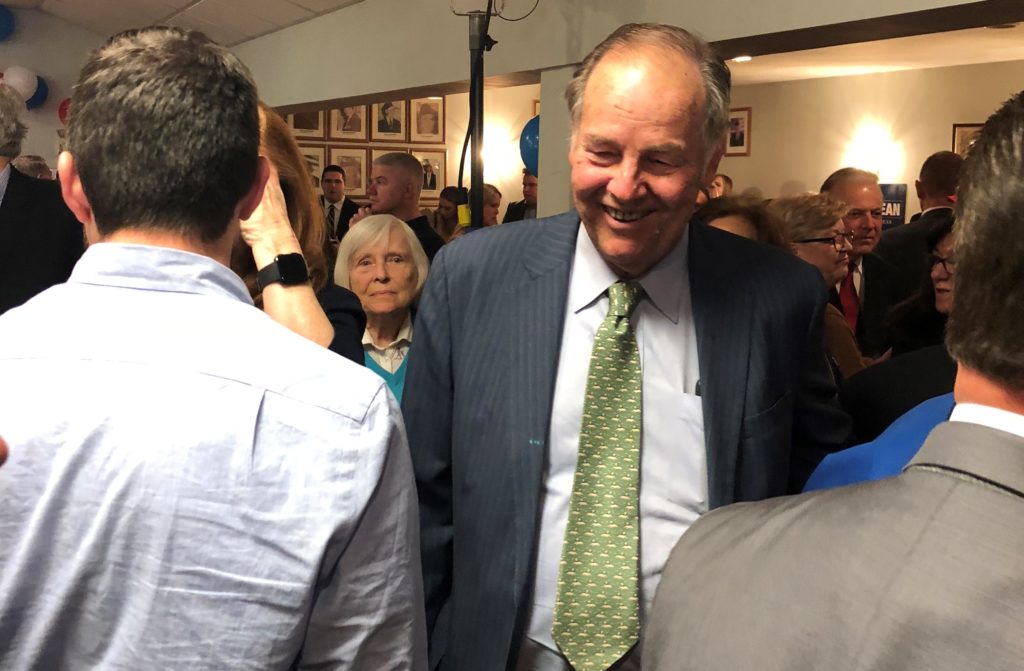Need for Broader Disclosure Law More Urgent Than Ever As Independent Spending Soars to New Record

By October 29, 2021, three days before election day, almost $40 million had been spent by independent groups in the gubernatorial primary and general elections, with $26 million, or 63 percent, spent on the general election alone.
Following a trend that began a little more than a decade ago, this spending by independent, so-called “Hidden Money” groups, is a new high. The total may even be larger once more reports become available in coming weeks.
Independent Spending in NJ
Gubernatorial Elections Since 2009
| Election Year | Spending (Primary and General) |
| 2009 | $ 14,080,168 |
| 2013 | $ 21,350,619 |
| 2017 | $ 24,504,152 |
| 2021 (Preliminary) | $ 39,502,499 |
| Total | $107,266,605 |
While independent spending has become a major force in New Jersey elections, the state’s disclosure law for those groups is notoriously weak.
If a 501c non-profit group or Super PAC or 527 political organization uses the so-called magic words such as “vote for” or “vote against”, which clearly indicate they are engaged in elections, they are required to disclose only their expenditures, not the source of their money.
If these groups solely run issue-oriented ads for or against candidates with no direct reference to the election, they are not required to publicly report even their expenses, let alone their contributions. About 25 other states have statutes requiring full disclosure for such ads.
New Jersey has been fortunate because many groups that have been involved in recent campaigns voluntarily disclose their contributions and expenditures by filing reports with ELEC. But some don’t. Others don’t report directly to ELEC. Or they report well after the election.
It takes a good deal of detective work to discover the extent of spending by these shadowy groups that are exempt from disclosure rules long followed by candidates, parties and traditional political action committees.
Recently, I spent time with former Governor Tom Kean as part of the History of the Commission Project I have begun at ELEC.
In the interview, seen at https://www.elec.nj.gov/aboutelec/ELEC_OralHistory.htm, the former Governor, speaking of these Hidden Money groups said: “I don’t mind people giving what they want to give but I want to know who gave it and why.”
This sentiment is not new for the former Governor. At a public hearing in 2000, Kean was critical of these groups describing them as “termites getting at the roots of democracy.”
About sixteen independent committees (at least that we know of) participated in this year’s gubernatorial contest. Both the Republican Governors Association ($3.8 million) and the Democratic Governor’s Association ($2.7 million) were among the heavy hitters this election season.
Others spending significant amounts in the gubernatorial contest were Our N.J. ($6.7 million), Garden State Forward ($5.5 million) and Committee to Build the Economy ($2.9 million).
No one is suggesting that these groups do not have a right to participate in New Jersey’s elections. They have an absolute First Amendment right to participate, and to raise and spend as much money as they please on election-related activity.
But former Governor Kean is correct that the public has a right to know who is behind this immense spending, which has come to dominate New Jersey elections.
While independent groups were spending tens of millions on the gubernatorial contest, political parties were again left in the dust.
For example, through three quarters of the year, the Big Six Committees (party entities including the two state party committees and four Legislative leadership committees) spent just $10.1 million, a sum considerably lower than the $40 million spent by independent groups.
The forty-two county party organizations, during the same period have spent just $6.1 million, a sum less than even the Big Six party committees.
Combined, the Big Six and county party committees spent just 41 percent of the total $40 million spent by independent committees on the gubernatorial contest during this year’s election cycle. Yet, the independent spenders have no legal requirement to disclose their contributors under current law.
This does not even include the additional $16 million spent by independent groups participating in the legislative elections.
So all told, Hidden Money groups spent a record $55 million participating in the gubernatorial and legislative primary and general elections compared to $16 million spent by the state and county party entities.
Unfortunately, this is typical of election cycles in New Jersey in recent years. Hidden Money groups are unbound in terms of their financial activity whereas more accountable political parties are highly regulated in terms of contribution limits, disclosure, and organization.
There is no reason why independent groups and political parties cannot be treated equally under campaign finance laws. If independent, Hidden Money groups pursue election-related activity, they should be required to fully disclose their contributions and expenditures.
And even at that independent groups would still have the advantage as the 2010 U.S. decision in Citizens United permits groups spending independently to receive contributions in unlimited amounts.
Along with a better disclosure law, the Election Law Enforcement Commission (ELEC) has proposed reforms that would strengthen accountable political parties and bring parity between them and independent groups.
Those recommendations include: removing parties from Pay-to-Play, including special interest PACs under Pay-to-Play, requiring contractor donations to independent groups to be disclosed, allow parties to participate in gubernatorial elections, increase contribution limits applicable to parties, allow county parties to give to each other, and a personal recommendation, provide tax credits for contributions to parties.
Jeff Brindle is the Executive Director of the New Jersey Election Law Enforcement Commission.
The opinions presented here are his own and not necessarily those of the Commission.





